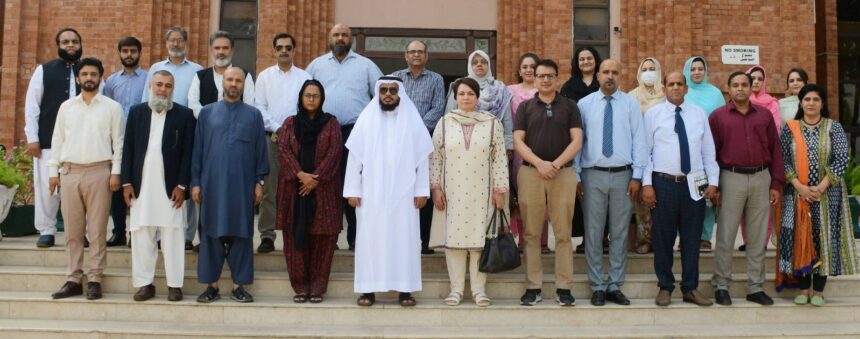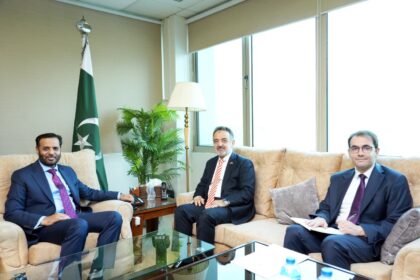The International Islamic University Islamabad inaugurated the country’s first postdoctoral fellowship in English linguistics at an orientation session held Monday afternoon in the Council Hall of the Admin Block on the New Campus H-10.
The ceremony was presided over by Prof. Dr. Ahmed Saad Alahmed and attended by the Dean of the Faculty of Languages & Literature, Dr. Fauzia Janjua, alongside faculty members who outlined the programme’s scope and structure. In his presidential address, Prof. Dr. Ahmed Saad Alahmed described the initiative as a historic milestone for higher education in Pakistan and reiterated the university’s commitment to advancing rigorous scholarship.
The President noted that Pakistan hosts more than 500 universities yet none had previously offered a postdoctoral fellowship devoted to English Linguistics. He emphasised the fellowship’s importance for documenting Pakistani English as an emerging variety with distinct phonological, syntactic, lexical and pragmatic features, and urged fellows to pursue work that will inform teaching practice and strengthen Pakistan’s voice within world Englishes.
Orientation sessions introduced the fellowship’s aims, expectations and research directions, highlighting opportunities to study developmental trajectories of Pakistani English and its sociolinguistic functions in education and public life. Programme leaders stressed the value of interdisciplinary collaboration, fieldwork, corpus-building and publication as core elements of successful postdoctoral research in English linguistics.
Dr. Fauzia Janjua welcomed guests and affirmed the faculty’s readiness to mentor incoming scholars. The programme team pledged targeted mentorship, research resources and institutional support to enable fellows to produce work relevant to national language policy discussions and international linguistic debates.
The Postdoctoral Fellowship Program in English Linguistics is designed to set standards for advanced research in Pakistan and to encourage other institutions to invest in postdoctoral training. By documenting and analysing Pakistani English, the initiative aims to anchor local linguistic identity, inform classroom practice and foster academic contributions that engage both regional realities and global scholarly conversations.











